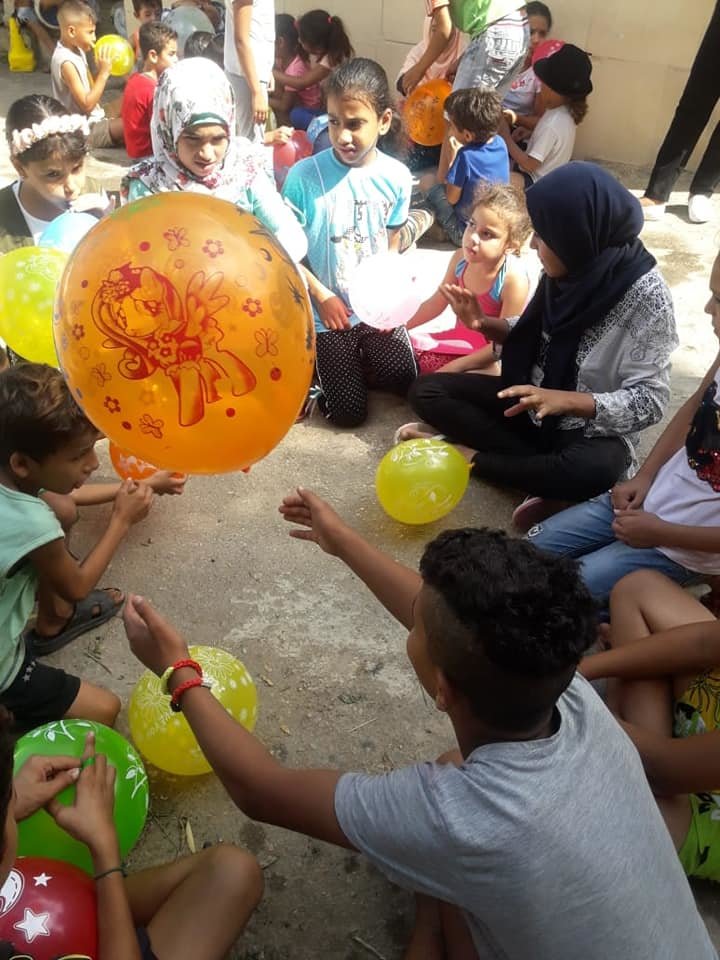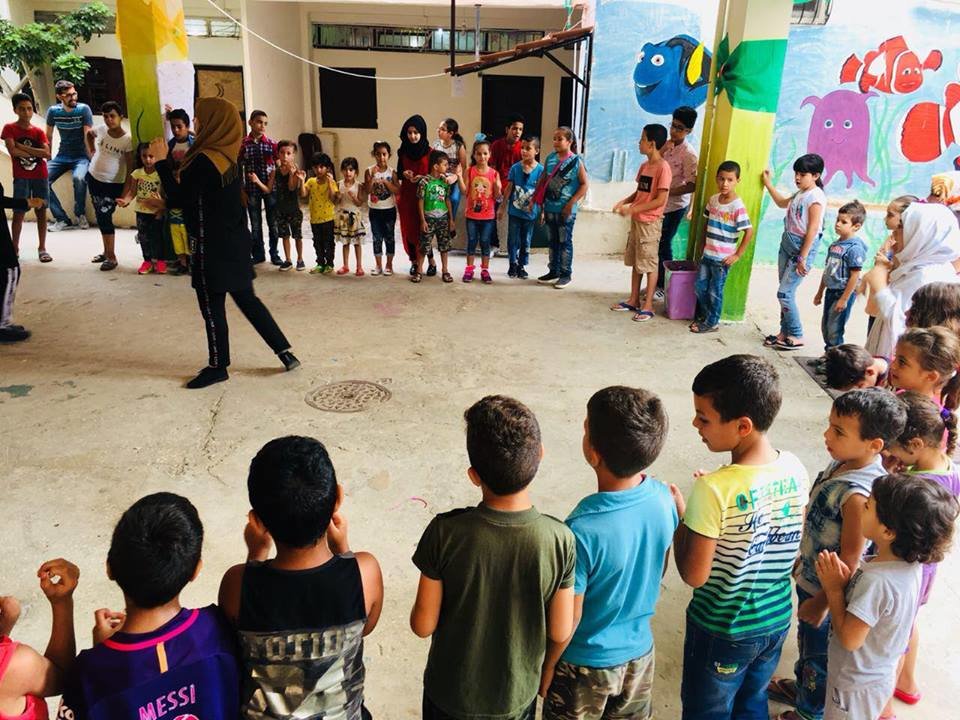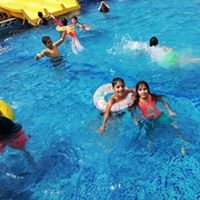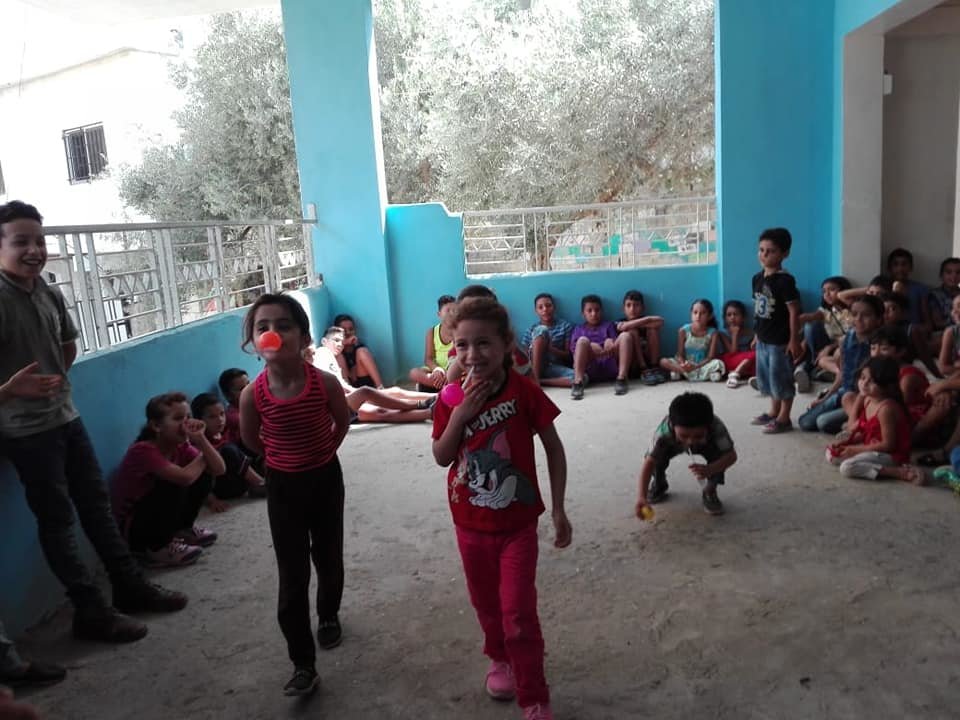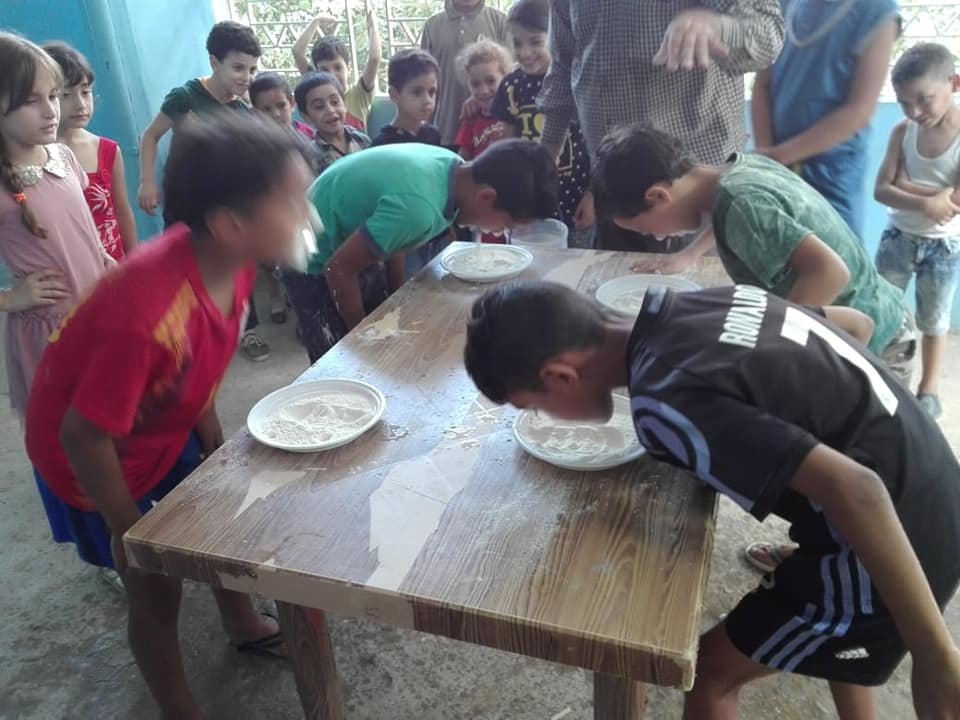By Hiba Hamzi | Program Coordinator
Background during and after the implementation of the project;
Palestine refugees face particular challenges amongst those affected by the Syria crisis, by being exposed to the severe consequences of displacement twice, reflected into greater uncertainties in terms of obtaining a legal status, access to property and accessing employment opportunities. Palestine refugees are one of the communities worst affected by the conflict with 95% of them in need of sustained humanitarian assistance.
In Lebanon, the poverty rate among families of Palestine Refugees from Syria is estimated at 89% and almost 95% are food insecure, whilst in Jordan, 90.2% of Palestine Refugees from Syria have been categorized as vulnerable. In addition, PRS face particular protection concerns linked to their status as Palestine refugees both in Lebanon and Jordan, increasing their vulnerability which is compounded by nearly 70 years of protracted displacement. Gender-specific vulnerabilities are also identified within the PRS communities in Jordan and Lebanon, with a very high proportion of female-headed households having no earners. Consequently, the vast majority of PRS families in both countries are fully reliant on UNRWA in a large range of areas, including protection, emergency cash for food, housing and winter clothing, non-food items, health care, emergency education, psycho-social support, and environmental health. With diminished living standards, more PRS have been risking the dangerous illegal migration schemes and paths to third countries, especially to Europe
Naba’a Achievements; During the last period, are highlighted as followings;
By promoting a coherent and innovative response, Naba’a Education Programme continues supporting the integration of PRS into its schools and enable these children to realize their full potential, even in times of crisis. It is crucial that children are able and encouraged to be in school, as those who are out of school are more susceptible to risks such as sexual exploitation, recruitment into armed groups, early child marriage and child labor.
Naba’a is working in a holistic integrated approach through different interventions,
- The provision of learning support for the 320 children whom are dropped out of school,
- Psychosocial support for 400 children whom are suffering from violence, neglected and abuse.
- Summer and recreational activities where during this period more than 2730 children participated in different recreational and non-formal activities, such as (Drawing, painting, theater, folk dance, story telling, etc…)
- Finally, the community engagement within these activity aiming to promote the overall wellbeing of Palestine refugee children. Where through this we are trying to address the issue of bullying and violence in a number of ways, including through its Ending Violence against Children Initiative, psychosocial support programme, and through regular training of education staff and parents.
CASE STUDY
Name: y-r-n
Date of Birth: 6/4/2010
Gender: Female
Nationality: Palestinian
Address: Ein El Helwe – Hay Al Safouri beside Nabaa’ center.
In school: No
She is living with her mother: No
She is living with her father: Yes
Number of brothers: 5 males (15-10-5-4-month) 3 females (14-6-3)
Arrangement of the child between his brothers: FourthAre there any people who are living with the child: StepmotherFather’s career: Collection of Scrap Currently
An overview about the Child's Life:
The girl is living with her father, his third wife and two brothers (2 males and 1 female) Sister and brother from her father knowing that her mother is divorced and she is the first wife whereas the second wife gave birth to two male babies and then he divorced her and he does not communicate with his children from his second wife. While, the third wife is form the Ethiopian nationality as well as he married her 4 years ago and he has two male and female babies from her. The stepmother relies on the eldest daughter to take charge of the house and to follow-up her brothers. Where an improvement in home hygiene was observed before especially after the father carried out some repairs to the house, where he separated his bedroom and his wife from the place where children sleep but it is still without a door. Knowing that, the children's bedroom is the same as the living room. Add to this, all the children are sleeping with each other without taking into consideration to separate males from females. The girl seems quiet, sad and always neglected with dirty clothes and body as well as she spends most of her time outside playing with children on the street.
The economic situation: Badly financial status, where the father is always justifying that there is no available work. But he is enough concerning his belonging to Fateh, which is 400,000 thousand Lebanese Lira which is not enough to provide the necessary needs of the family, especially in the presence of children since they need additional expenses such as milk, diapers and proper food. The family lives in a house owned by them knowing that the home is all about unhealthy room. The ceiling is about two meters high and this leads to feel special pressure in the summer. Health situation: The general situation of the girl is good. She complains of nothing but urination as well as this problem is suffered by her older brother, 14 years old. About a month ago, the girl was exposed to a health problem that led to her unconsciousness. She was taken to the UNRWA clinic and underwent the necessary tests, which should be presented to the pediatrician at the clinic. Her relation with: Mother: There is no relationship with her mother since she left her immediately after birth. Add to this, the second wife took care of her for a year. After her divorce, a neighbor took care of her and now her big sister is taking care of her taking into consideration that the mother does not ask about the girl as well as the girl is not asking about her mother and she doesn’t’ call to see her.
Girl’s relationship with her father:
The father stays outside house most of his time either in his work or with his friends in the street that’s why the relationship between them is normal. He is also uncaring to anything about children or home. The only thing he cares about is his external appearance.
Her Relationship with her brothers:
The girl is connected to her older sister, since she is taking care of her regarding food, drink, clothing, etc.
Main problem: school dropout / introverted/ Neglect in personal hygiene:
The girl does not go to school as well as she does not care about her personal hygiene and stays in the street all day long.
Deprivation of the mother makes the girl with sad gestures and looks scared and mentally unstable as she has the problem of involuntary urination. Add to this, children do not accept her because of its smell and lack of hygiene as her father and her stepmother don’t take care of her and don’t ask about her not which led her to be introverted.
As well as she spend most of her time outside the house without food or drink taking into consideration that playing in the street which expose her to suffer from exploitation.
Collecting information:
- House visits and interviews with her father and her stepmother.
- Community worker and the observation.
Plan of intervention:
• Home visits
• integrating the girl in activities
• Working on returning her back to school
• Presented her to the pediatrician at the center
• Involvement of brothers in structured activities
• Involving the stepmother in the awareness sessions / positive education
• Psychological follow-up of the girl per week
Report:
The girl y-r-n who born in 6/4/2010, a Palestinian girl living with her father and his third wife.
As we mentioned previously in the case study about the girls life, it shows that she needs psychosocial support. Here we are going to mention how to recognize the case and work on it: The social worker watched the girl in the street barefooted, shabby and middle-aged, as he brought her to the center in order to o see her identity and clean her face from dust and dirt. Then she shows that she does not wear internal clothes as well as her face has been cleaned and a conversation was conducted with her in order to see where she is living and to take her home and talk with her family.
After realizing where the house is, an intervention was completed by the social worker in order to study the case in details. After many observations and home visits it shows that the girl needs to be cared for, especially in the day where there is only the big sister, which is also in need of attention. As we found out the parents are neglecting the girl taking into consideration that we are afraid of Exploitation or abuse of that girl, especially as she is a girl who knows only playing and she spends all the time in the street
During the interviews with the girl and talking with her it turns out that the girl needs love affection as she tries to draw attention to her hair and clothes where she runs when she sees one of the female employees to kiss her and hug her.
In terms of the language of the child's skills which related to (time, in the characteristics of people in terms of their vocabulary, in the composition of the correct sentences (she looked very bad where do not know the colors and letters…)
In terms of culture that is related to public culture, the girl cannot answer any question.
On the social and emotional aspects that related to the participation, respect for the law, respect for others, good behavior, self-control and emotions, she is very weak.
Recommendations:
- Protect the girl from neglecting and exploitation.
- The integration of the girl with children through extra-curricular activities
- conduct interviews with parents in order to raise their awareness.
- Strengthening the girl in the language in terms of knowledge colors and shapes and time (kindergarten approach), but we cannot integrate her with children in the kindergarten.
- Put the girl in school next year
Links:
By Hiba Hamzi | Program Coordinator
By Hiba Hamzi | Program Coordinator
Project reports on GlobalGiving are posted directly to globalgiving.org by Project Leaders as they are completed, generally every 3-4 months. To protect the integrity of these documents, GlobalGiving does not alter them; therefore you may find some language or formatting issues.
If you donate to this project or have donated to this project, you can receive an email when this project posts a report. You can also subscribe for reports without donating.
Support this important cause by creating a personalized fundraising page.
Start a Fundraiser